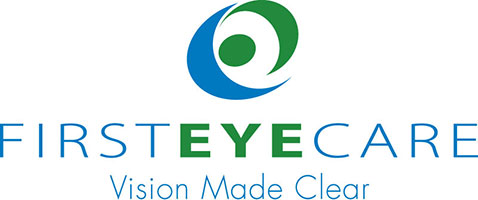It’s Crucial to Recognize Any Vision Issues
As you get older, your vision is one of the first things that begins to worsen and decline. Regardless if you have lived your entire life with a vision problem, or your vision has been relatively flawless, you will still experience a decline in your vision as you get older. It is perfectly normal, but there are instances when this declining vision may be the cause of an underlying eye condition.
Several eye conditions run in the family, so it is incredibly important to always be aware of your family history whenever you visit your eye doctor. This will allow both you and your doctor to closely monitor the health of your eyes, making sure you are not plagued with a vision-threatening disease.
However, not everyone has a history of eye diseases, but just because your family hasn’t been the victim of these eye diseases, does not mean that you can’t develop these conditions. The lack of family history often tricks you into a feeling of safety, but you must stay vigilant. Regardless if you have a family history of eye diseases, you should always be aware of any early signs of vision problems.
Many conditions do not make themselves known in their early stages, so it is important to catch any symptoms right away. By doing so, you protect the health of your eyes and vision. First Eye Care DFW is here to provide you with the necessary information to stay on top of your eye health. If you notice any of these early symptoms, contact us as soon as possible to schedule a comprehensive eye exam.
Common Eye Diseases
Before we get into the early signs of vision problems, we are going to briefly discuss some common eye diseases that often lead to these vision issues. Some of these conditions simply require some vision correction, while others threaten the entirety of your eye and your vision. It’s important to know these diseases to understand how important catching the early signs of vision problems is. Regularly receiving an eye exam every year can also help you save your vision.
- Glaucoma: Glaucoma occurs when the optic nerve that sends signals to the brain becomes damaged. It is often characterized by blurry vision, eye pain, halos, and more.
- Age-Related Macular Degeneration (AMD): AMD occurs when the macula, the part of the eye responsible for clear vision, becomes damaged. It’s characterized by a gradual loss of vision, dark area in central vision, distorted shapes, and more.
- Diabetic Retinopathy: For those with diabetes, their condition affects the blood vessels in their eyes, causing them to leak, which can lead to blindness.
- Myopia (Nearsightedness): You can see items close to your face, but struggle with objects far away.
- Hyperopia (Farsightedness): You can see items far away, but struggle with objects close to your face.
- Astigmatism: Astigmatism is a refractive error caused by an irregular shape of the cornea. You may experience eyestrain, headaches, squinting, blurred vision, and more.
- Amblyopia: Frequently referred to as a lazy eye, the vision in one eye is much weaker than the other.
- Strabismus: This condition is commonly referred to as cross-eyed and occurs when someone’s eyes are not properly aligned, leading to them pointing in different directions.
While there are more vision problems, these are some of the most common. Many of these do run in the family, so you should always be aware of your family history. Regardless of your family history, you should regularly receive an eye exam to monitor the health of your eyes.
Early Signs and Symptoms
Several different eye conditions threaten your eyes and your visions. While many of them do not make themselves known until it is too late, there are still plenty of early signs to keep an eye out for. Whenever you do recognize these symptoms, contact First Eye Care DFW and schedule an eye exam.
Some early signs of vision problems to keep an eye out for include:
- Blurred vision
- Double vision
- Frequent flashes of light
- Recurring eye pain, either in or around the eye
- Light sensitivity
- Seeing halos of light
- Sudden eye pain
- A sensation like a dark curtain is falling over your eye
- The sudden appearance of many floaters in your field of vision
- Blind spots
- Poor night vision
- Sudden changes in color vision
- Red, irritated eyes
- Sudden, drastic changes in vision
- Swelling eyes
While it may take some time for these symptoms to appear, it is important to seek medical attention as soon as possible in order to properly treat any types of vision problems.
Signs Involving Everyday Life
While the above list of early signs is what you would expect when it comes to vision problems, there are plenty more signs to be aware of. Your vision affects a great deal of your life, from reading and writing to driving and working on a computer. It also affects your depth perception, which helps you navigate the world safely. When your vision is compromised, so will the things you took for granted.
Here are more early signs you must be aware of:
- Having difficulty walking straight or steadily
- Over- or under-reaching objects, missing them entirely
- Struggling to walk in straight lines
- Consistently squinting or tilting your head to focus on an object
- Struggling to differentiate between colors
- Having difficulty recognizing faces and objects
- Quitting everyday activities, such as reading, writing, driving, walking, and more
- Difficulty eating, such as not being able to pick up food with your utensil
- Knocking over cups when reaching over a table
- Holding reading material close to your face or far from it
- Struggling to write correctly and in a straight line
- Realizing lighting you normally had no troubles in was no longer good enough
- Uncertainty in how you walk and move throughout your home or workspace
While none of these appear to be obvious vision problems at first glance, they are issues that affect how you see the world and, thus, how you maneuver through it.
Regardless, no matter who you are, you should regularly receive a comprehensive eye exam every year at the least. This allows you and your doctor to discover any hidden eye diseases that may threaten your vision. Many of these conditions do not make themselves known until it’s too late, so these exams are crucial. If you do experience any of these early signs, contact First Eye Care DFW and allow us to properly diagnose and treat your vision problems.



